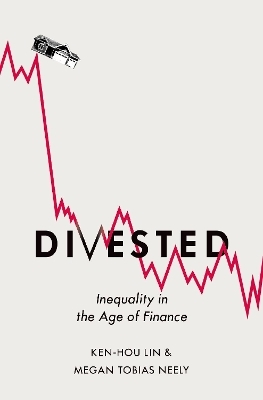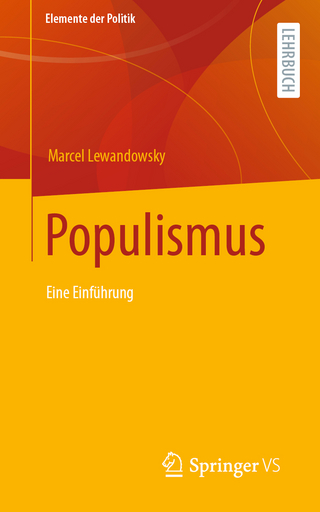
Divested
Inequality in Financialized America
Seiten
2020
Oxford University Press Inc (Verlag)
978-0-19-063831-3 (ISBN)
Oxford University Press Inc (Verlag)
978-0-19-063831-3 (ISBN)
Divested documents how the ascendance of finance is a fundamental cause of economic inequality in the United States. This wide-ranging and comprehensive account demonstrates the many ways financial sector has reshaped the economy, leaving the average American adrift in a world driven by the maximization of financial profit.
Finance is an inescapable part of American life. From how one pursues an education, buys a home, runs a business, or saves for retirement, finance orders the lives of ordinary Americans. And as finance continues to expand, inequality soars.
In Divested, Ken-Hou Lin and Megan Tobias Neely demonstrate why widening inequality cannot be understood without examining the rise of big finance. The growth of the financial sector has dramatically transformed the American economy by redistributing resources from workers and families into the hands of owners, executives, and financial professionals. The average American is now divested from a world driven by the maximization of financial profit.
Lin and Neely provide systematic evidence to document how the ascendance of finance on Wall Street, Main Street, and among households is a fundamental cause of economic inequality. They argue that finance has reshaped the economy in three important ways. First, the financial sector extracts resources from the economy at large without providing economic benefits to those outside the financial services industry. Second, firms in other economic sectors have become increasingly involved in lending and investing, which weakens the demand for labor and the bargaining power of workers. And third, the escalating consumption of financial products by households shifts risks and uncertainties once shouldered by unions, corporations, and governments onto families.
A clear, comprehensive, and convincing account of the forces driving economic inequality in America, Divested warns us that the most damaging consequence of the expanding financial system is not simply recurrent financial crises but a widening social divide between the have and have-nots.
Finance is an inescapable part of American life. From how one pursues an education, buys a home, runs a business, or saves for retirement, finance orders the lives of ordinary Americans. And as finance continues to expand, inequality soars.
In Divested, Ken-Hou Lin and Megan Tobias Neely demonstrate why widening inequality cannot be understood without examining the rise of big finance. The growth of the financial sector has dramatically transformed the American economy by redistributing resources from workers and families into the hands of owners, executives, and financial professionals. The average American is now divested from a world driven by the maximization of financial profit.
Lin and Neely provide systematic evidence to document how the ascendance of finance on Wall Street, Main Street, and among households is a fundamental cause of economic inequality. They argue that finance has reshaped the economy in three important ways. First, the financial sector extracts resources from the economy at large without providing economic benefits to those outside the financial services industry. Second, firms in other economic sectors have become increasingly involved in lending and investing, which weakens the demand for labor and the bargaining power of workers. And third, the escalating consumption of financial products by households shifts risks and uncertainties once shouldered by unions, corporations, and governments onto families.
A clear, comprehensive, and convincing account of the forces driving economic inequality in America, Divested warns us that the most damaging consequence of the expanding financial system is not simply recurrent financial crises but a widening social divide between the have and have-nots.
Ken-Hou Lin is Associate Professor of Sociology at the University of Texas at Austin.His research examines how the economic and demographic changes in past four decades shape the distribution of resources in the United States. Megan Tobias Neely is a Postdoctoral Fellow in Sociology at The Clayman Institute for Gender Research at Stanford University.
Acknowledgements
Preface
1. The Great Reversal
2. The Social Question
3. Finance Ascends
4. The Financial Turn of Corporate America
5. American Life in Debt
6. A People's Portfolio of the United States
7. The Aftermath
8. Conclusion: (In Search of) A Just World
Note
Bibliography
Index
| Erscheinungsdatum | 02.02.2019 |
|---|---|
| Verlagsort | New York |
| Sprache | englisch |
| Maße | 236 x 163 mm |
| Gewicht | 476 g |
| Themenwelt | Sozialwissenschaften ► Politik / Verwaltung ► Vergleichende Politikwissenschaften |
| Sozialwissenschaften ► Soziologie | |
| Wirtschaft ► Volkswirtschaftslehre ► Wirtschaftspolitik | |
| ISBN-10 | 0-19-063831-1 / 0190638311 |
| ISBN-13 | 978-0-19-063831-3 / 9780190638313 |
| Zustand | Neuware |
| Haben Sie eine Frage zum Produkt? |
Mehr entdecken
aus dem Bereich
aus dem Bereich
Geschichte, Parteistruktur, Radikalisierung
Buch | Softcover (2024)
UTB (Verlag)
27,90 €


